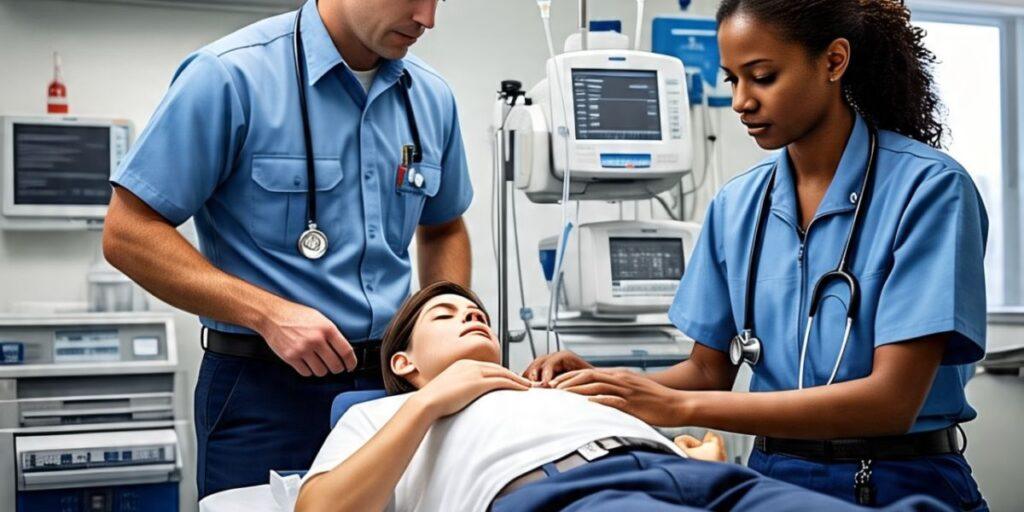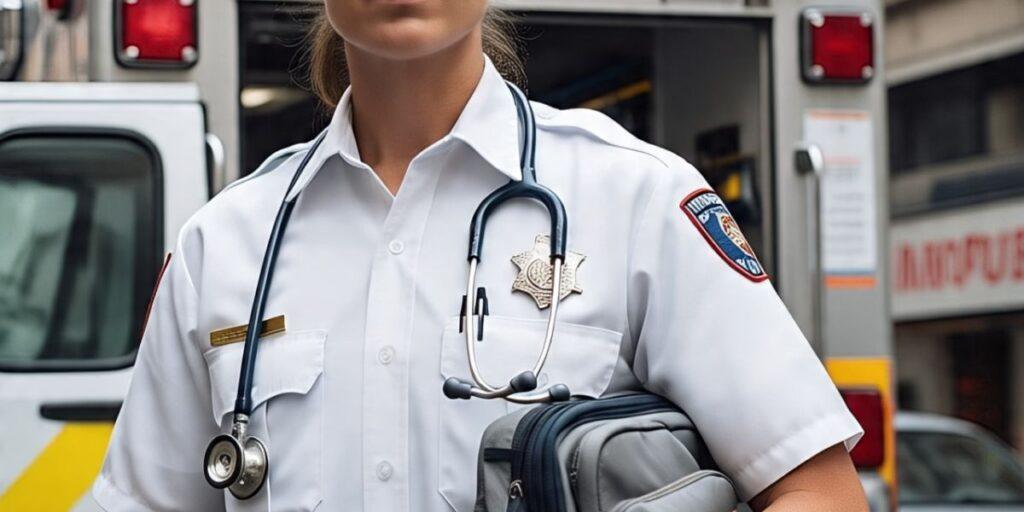
So, you think you know what paramedics do?
Paramedics? Yeah, most folks picture someone jumping out of an ambulance, performing CPR, and zooming off with sirens blaring. And while that’s part of the gig, there’s so much more going on behind the scenes. These aren’t just “ambulance drivers”—they’re highly trained, emotionally resilient, mentally sharp professionals who step into chaos daily and try to make sense of it… often in minutes.
Let’s set the record straight—and maybe surprise you a little—with these 10 things you probably didn’t know about paramedics.
1. They Make Life-or-Death Decisions in Minutes—Sometimes Seconds
When someone’s gasping for air, bleeding out, or suffering a full-blown cardiac arrest, there’s no time for a huddle or a whiteboard. Paramedics are trained to assess, decide, and act fast. We’re talking about seconds here, not minutes.
They run through protocols in their heads like algorithms: is it trauma? Stroke? Anaphylaxis? The wrong move can cost a life; the right one might just save it. It’s like defusing a bomb blindfolded—except the bomb is a human being, and time’s ticking fast.
And honestly, you can’t Google your way out of that pressure.
2. They’re Not Just Trained—They’re Licensed Medical Professionals
Surprise: becoming a paramedic isn’t just a matter of slapping on a uniform and learning CPR. In most countries—including the USA, UK, and Australia—paramedics go through rigorous paramedic certification programs. We’re talking thousands of hours in the classroom, clinical rotations, exams, and fieldwork.
They understand anatomy, pharmacology, advanced life support, and how to lead emergency scenes—not just survive them.
So yeah, that patch on their sleeve isn’t just for show. It’s earned.
3. You’ll Find Them in Helicopters, Stadiums, Boats, and… Anywhere
Paramedics aren’t confined to ambulances. Some of them operate in helicopters as flight paramedics, swooping in like real-life action heroes. Others are stationed in football stadiums, music festivals, oil rigs, and even remote islands, where the nearest hospital is a 3-hour boat ride away.
Heck, there are even tactical paramedics who work with SWAT teams. They wear Kevlar, carry trauma kits, and treat injuries under fire. Literally.
4. Their Shifts Can Last 12–24 Hours—And No, It’s Not a Sitcom
Imagine this: you clock in at 7 a.m., you’re on your feet all day, and then boom—a multi-vehicle pile-up at 2 a.m. Guess who’s still working?
Welcome to the life of a paramedic.
Some shifts run 12 hours; others go up to 24. And in rural areas or understaffed units, even longer. Fatigue is real, and sleep is a luxury. But someone’s got to answer that 911 call at 4 a.m.
5. They Don’t Just Handle Blood and Broken Bones
This one trips people up. Sure, trauma cases make the headlines, but a lot of paramedics’ calls involve mental health crises, chronic illnesses, elderly falls, overdoses, or plain ol’ people who feel like something’s wrong but can’t explain what.
They might be treating a diabetic crash one minute and counseling a suicidal teen the next.
They’re not just medics. They’re listeners, problem-solvers, and sometimes even de-escalators in volatile situations. Sounds like a lot? That’s because it is.
6. Mental Health Support Isn’t Optional—It’s Essential

You know that saying, “You can’t pour from an empty cup?” Well, paramedics pour out a lot—and not always with a chance to refill. Between traumatic calls, long hours, and the emotional whiplash of life-or-death scenes, burnout is real.
That’s why there’s an increasing focus on mental health in emergency response careers. Peer support teams, crisis debriefs, and counseling hotlines are becoming the norm, not the exception.
And thank goodness, because even heroes need help, too.
7. They Train Continuously—Even While on the Job
Paramedics don’t just train to become paramedics. They keep training as paramedics.
Think continuing education on advanced life support training, new medical devices, emerging street drugs, evolving pandemic protocols—you name it. Some even pursue additional paramedic school online just to keep up or specialize.
It’s like being in a job where the rules keep changing—but you’re still expected to ace the test every time.
8. Some Paramedics Specialize in Kids, Combat, or air rescue.
You heard that right. Paramedics can specialize beyond the standard role:
- Pediatric paramedics deal with infants and children, who require entirely different care protocols.
- Tactical paramedics train with law enforcement and operate in high-risk zones.
- Flight medics manage patients at 10,000 feet with limited equipment and zero backup.
Specialization often means more training, higher paramedic course fees, and tougher standards—but it also opens doors to the best paramedic job outlook in high-demand areas.
9. They’re Often the First Face You See When Your World Falls Apart
Let’s not sugarcoat it: if you’re meeting a paramedic, it probably means something bad just happened. And in that chaos—whether it’s a car crash, a heart attack, or a bad trip—they’re the first calm, capable presence in the room.
They stabilize the patient, comfort the family, and manage the scene, and they do it all while radioing for more help. Honestly, they’re the glue that holds that first chaotic 30 minutes together.
It’s not about heroics—it’s about showing up when no one else knows what to do.
10. They’re the Unsung Heroes Behind Survival Stories
We all remember the surgeon who performed a miracle or the nurse who held a hand in the ICU. But rarely do we talk about the paramedic who got them there in time, alive.
Behind every survival story, there’s often a paramedic whose name you’ll never know. They don’t seek attention. They don’t need a parade. But if you ask them why they do it, most will shrug and say, “Because someone has to.”
You know what? That’s kind of badass.
Let’s Talk Numbers (Because Yes, This Can Be a Career Too)
If you’re reading this and thinking, “Man, maybe I could do that,” here’s a quick reality check on the career side:
- Paramedic salary (USA): $45k–$75k depending on state, overtime, and specialty.
- Paramedic salary (UK): £27k–£45k with NHS experience tiers.
- Paramedic salary (Australia): AU$60k–AU$100k depending on location and qualification.
Want in? You can find paramedic programs near me or look up the best paramedic schools 2025 for current rankings. Online options? Yep, paramedic school online is a real thing—just make sure it’s accredited.
And before you ask: yes, paramedic vs EMT is a real distinction. EMTs handle basic care; paramedics handle the advanced stuff—IVs, meds, intubations, etc.
Final Word? Respect the Uniform

Paramedics don’t wear capes, but let’s be honest—they probably should.
They walk into situations most people run from. They bear witness to both tragedy and triumph. And they don’t do it for fame, fortune, or likes on a viral post. They do it because someone has to.
So next time you hear sirens blaring, pause. Somewhere in that speeding vehicle is a paramedic making a decision that could mean life or death for someone. Maybe even someone like you.
And that? That deserves a little recognition.


